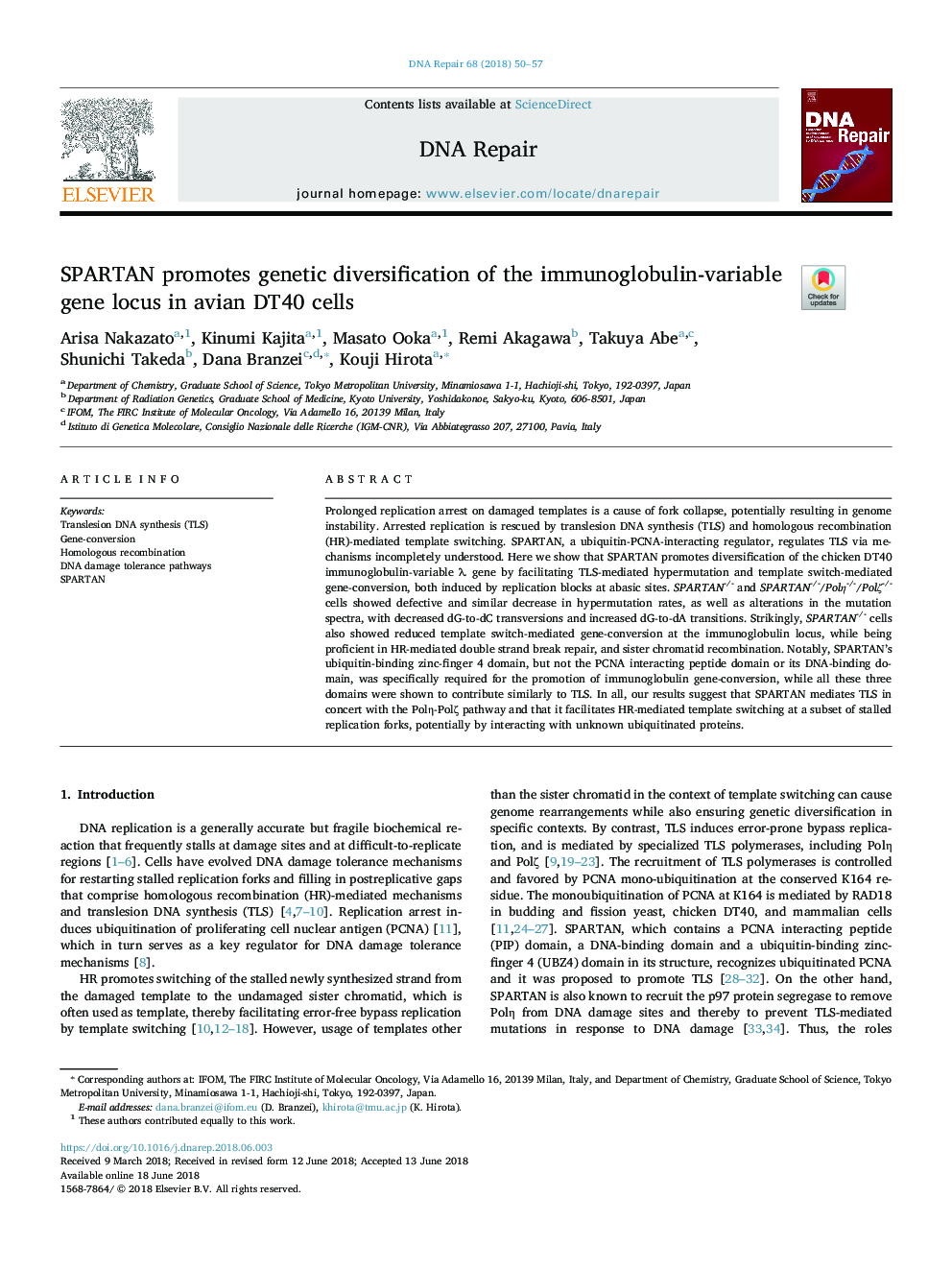| Article ID | Journal | Published Year | Pages | File Type |
|---|---|---|---|---|
| 8320332 | DNA Repair | 2018 | 8 Pages |
Abstract
Prolonged replication arrest on damaged templates is a cause of fork collapse, potentially resulting in genome instability. Arrested replication is rescued by translesion DNA synthesis (TLS) and homologous recombination (HR)-mediated template switching. SPARTAN, a ubiquitin-PCNA-interacting regulator, regulates TLS via mechanisms incompletely understood. Here we show that SPARTAN promotes diversification of the chicken DT40 immunoglobulin-variable λ gene by facilitating TLS-mediated hypermutation and template switch-mediated gene-conversion, both induced by replication blocks at abasic sites. SPARTAN-/- and SPARTAN-/-/Polη-/-/Polζ-/- cells showed defective and similar decrease in hypermutation rates, as well as alterations in the mutation spectra, with decreased dG-to-dC transversions and increased dG-to-dA transitions. Strikingly, SPARTAN-/- cells also showed reduced template switch-mediated gene-conversion at the immunoglobulin locus, while being proficient in HR-mediated double strand break repair, and sister chromatid recombination. Notably, SPARTAN's ubiquitin-binding zinc-finger 4 domain, but not the PCNA interacting peptide domain or its DNA-binding domain, was specifically required for the promotion of immunoglobulin gene-conversion, while all these three domains were shown to contribute similarly to TLS. In all, our results suggest that SPARTAN mediates TLS in concert with the Polη-Polζ pathway and that it facilitates HR-mediated template switching at a subset of stalled replication forks, potentially by interacting with unknown ubiquitinated proteins.
Keywords
Related Topics
Life Sciences
Biochemistry, Genetics and Molecular Biology
Biochemistry
Authors
Arisa Nakazato, Kinumi Kajita, Masato Ooka, Remi Akagawa, Takuya Abe, Shunichi Takeda, Dana Branzei, Kouji Hirota,
